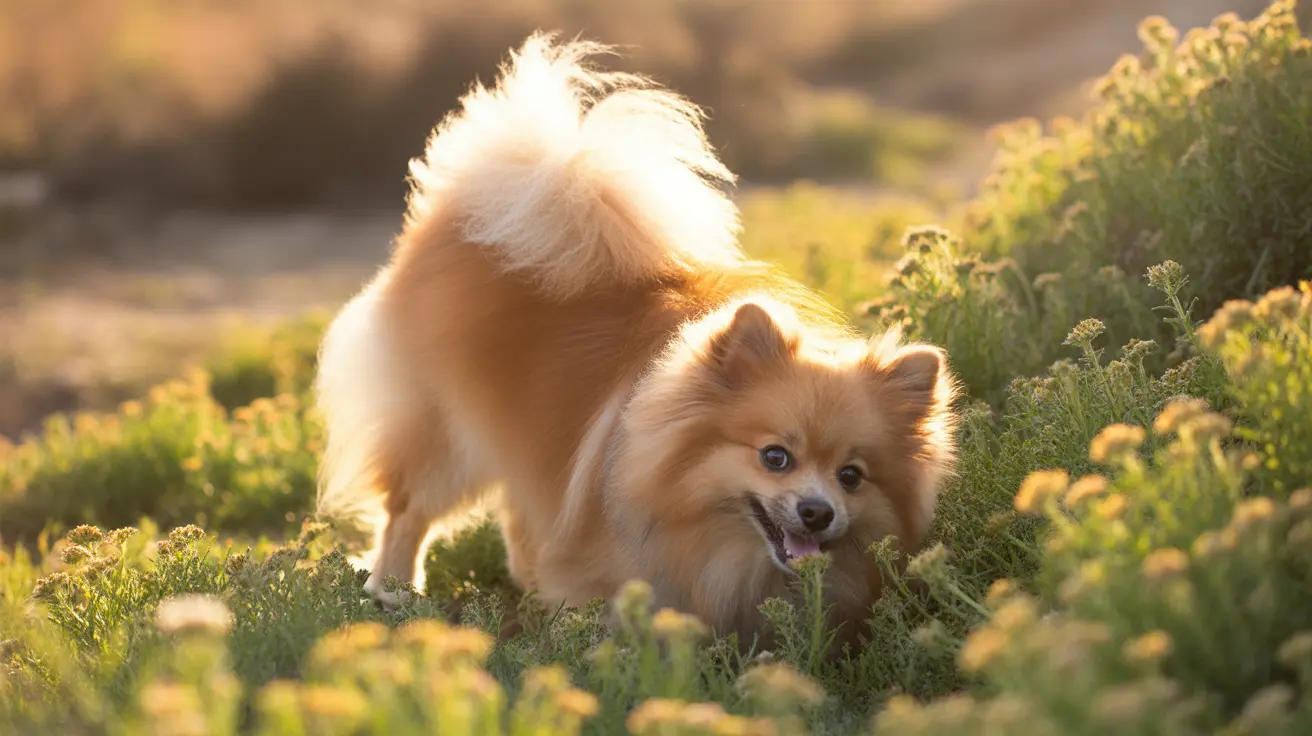Have you noticed your dog emanating a sweet, maple syrup-like scent? While this unusual aroma might seem charming at first, it's important to understand what causes this distinctive smell and when it might signal a health concern.
In this comprehensive guide, we'll explore the various reasons behind your dog's maple syrup scent, from harmless environmental factors to potentially serious medical conditions that require veterinary attention.
Common Environmental Causes of Maple Syrup Smell
Dietary Sources
The most straightforward explanation for a maple syrup smell could be your dog's recent diet. Dogs who have consumed foods containing maple syrup, honey, or other sweet ingredients may temporarily carry this scent on their breath or fur. This is particularly common if your pet has gotten into:
- Pancakes or waffles with syrup
- Sweet breakfast cereals
- Baked goods containing maple flavoring
Plant Interactions
Certain plants, particularly California cudweed (Pseudognaphalium californicum), naturally emit a maple syrup-like fragrance. Dogs who roll in or brush against these plants during walks may bring this scent home on their fur. This is especially common in western regions where these plants are native.
Medical Causes for Concern
Yeast Infections
A persistent maple syrup smell, especially when accompanied by itching or skin irritation, could indicate a yeast infection. These infections commonly occur in:
- Ears
- Paw pads
- Skin folds
- Groin area
If you notice redness, inflammation, or excessive scratching along with the sweet smell, it's time to consult your veterinarian.
Metabolic Conditions
In some cases, a maple syrup odor could indicate more serious health issues:
- Diabetes mellitus, particularly when progressing to ketoacidosis
- Metabolic disorders affecting amino acid processing
- Hormonal imbalances
These conditions typically present with additional symptoms such as increased thirst, frequent urination, lethargy, or changes in appetite.
When to Contact Your Veterinarian
While some causes of maple syrup smell are harmless, certain situations warrant professional medical attention:
- The smell persists for more than a few days
- Your dog shows signs of illness or behavioral changes
- You notice skin problems or excessive scratching
- There's a sudden increase in drinking or urination
- Your pet seems unusually lethargic or uncomfortable
Prevention and Monitoring
To help prevent and monitor maple syrup odors:
- Regular grooming and inspection of your dog's coat
- Careful supervision during walks to monitor plant interactions
- Regular veterinary check-ups
- Proper diet management and food storage
- Monitoring for any changes in behavior or health
Frequently Asked Questions
Why does my dog suddenly smell like maple syrup even if they haven't eaten anything sweet?
Sudden maple syrup odors can result from contact with aromatic plants, yeast infections, or metabolic changes. If the smell appears without an obvious cause, monitor your pet for other symptoms and consult your veterinarian if concerned.
Can yeast infections cause my dog to emit a sweet or maple syrup-like odor?
Yes, yeast infections commonly cause a sweet, maple syrup-like smell, particularly in ears, paw pads, and skin folds. These infections usually come with additional symptoms like redness, itching, and inflammation.
What plants cause dogs to smell like maple syrup after being outside?
California cudweed is the most common plant known to cause a maple syrup smell in dogs. Other regional plants may produce similar scents, particularly during flowering seasons.
Is a maple syrup smell on my dog's breath a sign of diabetes or other serious health issues?
While not always indicative of diabetes, a persistent sweet breath odor, especially when accompanied by increased thirst, urination, or appetite changes, should be evaluated by a veterinarian to rule out serious conditions.
How can I tell if my dog's maple syrup odor is from something harmless or a medical condition?
Consider the duration and context of the smell, along with any other symptoms. Temporary smells after outdoor activities or meals are usually harmless. Persistent odors, especially with additional symptoms, warrant veterinary attention.
If you're ever unsure about your dog's health or unusual odors, it's always better to err on the side of caution and consult with your veterinarian for proper diagnosis and treatment.






